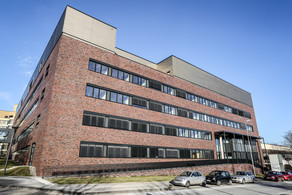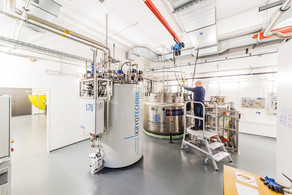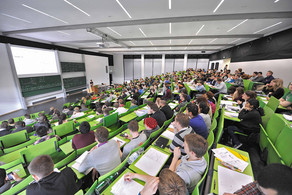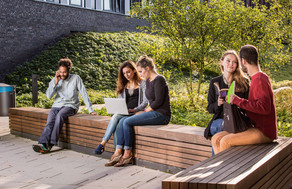Courses of Studies
The Department of Physics at TU Dortmund University offers Bachelor and Master degree programs in physics, medical physics and for teacher training.
Bachelor (Medical) Physics
The bachelor's degree programs in physics and medical physics lay the foundation of mathematical and physical knowledge. In the first semesters, the focus is typically on a sound education in mathematics and the teaching of basic physical phenomena, e.g. from the fields of mechanics, electrodynamics and quantum mechanics. These are then supplemented by experimental excercises, through which students gain their first experience in the laboratory. The physical education is supplemented by the teaching of basic and applied IT skills, whereby computer science can also be chosen as an elective subject. While the bachelor's degree program in medical physics additionally teaches basic medical expertise, the bachelor's degree program in physics focuses on a broad education in the modern fields of physics. In the last semester of both degree programmes, students work on a scientific or clinical topic within the framework of a Bachelor's thesis.
The Bachelor's degree courses are designed for six semesters and can only be started in the winter semester.
Please confirm video activation.
After activation, cookies will be set and data is sent to YouTube (Google).
To the Google Privacy Policy
Master (Medical) Physics
The Master's degree programs in physics and medical physics build on the corresponding Bachelor's degree programs. On the one hand, they enable a more in-depth examination of current topics in physics or further clinical aspects. The training includes advanced practical training as well as advanced theory lectures and seminars. On the other hand, both degree programs provide for specialisation in selected topics. The final stage is a practical phase with a Master's thesis, in which students work independently on a scientific topic.
The Master's degree courses are designed for four semesters and enrolment is possible in both the winter and summer semesters.
Please confirm video activation.
After activation, cookies will be set and data is sent to YouTube (Google).
To the Google Privacy Policy
Teacher training
Teacher training courses in the Bachelor's and Master's programs focus not only on subject-specific training but also on imparting subject-specific didactic knowledge. They are also supplemented by a second major subject. The natural choice here is mathematics, as there is a large overlap in content and methodology. The students also work directly at school institutions within the framework of practical phases. These two degree program also conclude with a Bachelor's or Master's thesis.














